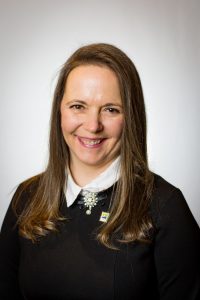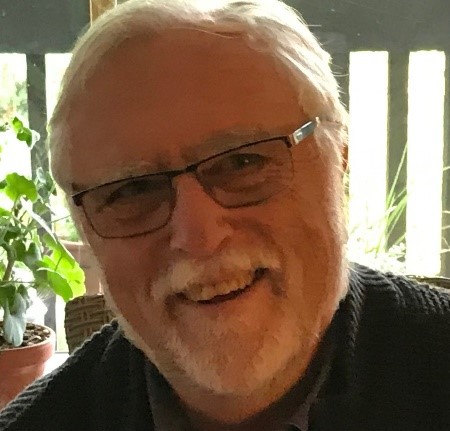Posted • Last updated
Categories: My Experience
In this blog post, patient partner Edwina Nearhood, a “What Matters to You?” Ambassador, discusses why the initiative resonates with her personally, how she got involved last year, and how she plans to keep the momentum going in 2018!
My name is Edwina Nearhood, and I am a “What Matters to You?” (WMTY) Ambassador.
I am so excited that WMTY has been launched as an everyday campaign – something we act upon every day and not just on one day each year. Enthusiasm builds inspiration. Inspiration builds bridges. Bridges connect. Relationships grow and improve with connectivity.

In 2017 I asked the City of Fort St. John to declare June 6, 2017, as “What Matters to You?” Day in our city. Our mayor and council were pleased to bring awareness and involvement within the community. They were encouraging and suggested that this would become a legacy project that would be instrumental in building a stronger community, driven from the community supporting those offering health and social care. The word got out and we managed in a short time to bring together a few volunteers to make a big impact.
We set up “What Matters to You?” stations at the Fort St. John Hospital in the atrium, the emergency waiting room and the birthing centre. We were able to get messaging from patients and health care professionals. Jennifer Moore from the Fort St. John Hospital Foundation was our biggest supporter. She was able to see the value in supporting front line staff to understand and meet the needs of patients and families. The messages were taken back to leadership as a measure for quality improvement projects.
We were also supported by the Fort St. John Women’s Resource Society who gathered messaging from their clients that access social safety net care.
One of my favourite responses from staff was that of the Mental Health Team. They talked about the peer support they offered one another, as well as the strong leadership their manager provided. This team exemplifies “What Matters to You?” and they are considered champions for the Ask, Listen and Respond skills.
2018 “What Matters to You?” campaign
I am fortunate to have built many bridges and fostered relationships of trust with Northern Health leadership. I am truly grateful for the time they have offered me in helping with the culture shift to a more person- and family-centred care model.
I have been invited to present at two leadership forums with Northern Health in the spring of 2018. I tend to be very bold and will ask to attend events when there is an opportunity. I was invited to present at the Northeast BC leadership forum by a leader who had attended the Prince George leadership forum. As we work to bring patients and health care professionals together, I suggested that there should be a patient in the room at every opportunity. They invited me for the entire day! It is time to show up and build trust so that together we can make improvements for the good of all.
I spent a fantastic Friday at the forum with a group of great leaders. I was given the opportunity to pitch the “What Matters to You?” campaign, and I believe it was very well received. I suggested to leadership that they can also use the campaign with their staff to listen to the needs of those people on the front lines. We talked in the room about the importance of modelling to our staff what is expected of them. We spoke of values and tools and support. I heard many leaders leave the room with a simple message that they planned to put on the corner of their desk or screen, asking themselves if they had considered the patient in their work today. I left the day with feelings of positivity and hope. I am certain that having patients in the room does make a difference.
In my messaging I offered three tools. I offered a clean slate or a blank sheet of paper, a clock and a forklift. I encouraged leadership to challenge their staff to use one or all of the tools each and every day.
A blank sheet of paper or clean slate should be offered each time we see a person. When dealing with similar symptoms day after day it is easy to think that you have seen it all before and miss out on the opportunity of taking a fresh history. When talking with another person, it is easy to quickly jump to assumptions.
The clock represents time – take some time to listen to what the patient is messaging. Sometimes the messaging may be unclear due to pain or fear. Please take the time to ask, listen and learn about what is going on. In my particular story, had the emergency team granted my request to listen to my heart and do an EKG, I would have avoided a reactive health care crisis, seven days in ICU, a stroke and so much more. In my messaging, my purpose was to offer my story as an opportunity to bridge the importance of taking time and listening.
The third tool is a forklift, which reminds us to always remember to meet people where they are at. I am a highly activated patient with more than 30 years of experience managing congenital heart disease. I am involved and do everything I can to stay as healthy because I have a lot to live for. Not every patient shows up in the same way. Many patients do not self-advocate. Some patients are palliative and have end-of-life wishes that have nothing to do with medical care. I remember when I was in ICU my 14-year-old son was afraid I was going to die and did not want to come and visit me (I am his only living parent). The night he did show up in ICU, he came late and the nurse asked them to leave after a very brief visit because visiting hours were over. I was more distraught by this than everything else that was going on. It was a quiet time in ICU, and there were few patients and no emergency, so in my mind it would have been fine to bend the rules after visiting hours. The other nurses on other shifts had no problem with this. Had that nurse taken some time and had empathy for a heart patient and met me where I was at, she would have been part of a positive care team understanding that my family well-being is important to me.
My experiences are my drivers. My hope for improvement is my motivation. My love and enjoyment of building strong relationships are my passions.
Time is easy – we all have an hour or two to spend on something that makes a difference. Get connected, stay connected, be connected. Be the reminder to everyone you meet about “What Matters to You?”. Start a conversation. Pitch the initiative with local service groups. Train and educate patients and families. Show up with pop-up booths. There are so many ways we can share the word.
On an amusing note, this is my saturation test that shows me when I have pushed a bit too hard: people stop making eye contact as we pass in the hallways. So far, I don’t seem to get too much of that! Thank goodness. My challenge to each of you is to go out and make a difference. It is not hard. It does not have to take a lot of time. Many people are ready, willing and able to show up. Many hands get work done.
Author: Edwina Nearhood
Edwina Nearhood is a Patient Voices Network Volunteer and a WMTY Ambassador. She is very passionately involved in working together with health care partners and system designers to promote quality and wellness centered around patient and families. You can find her on Twitter @EdwinaNearhood


